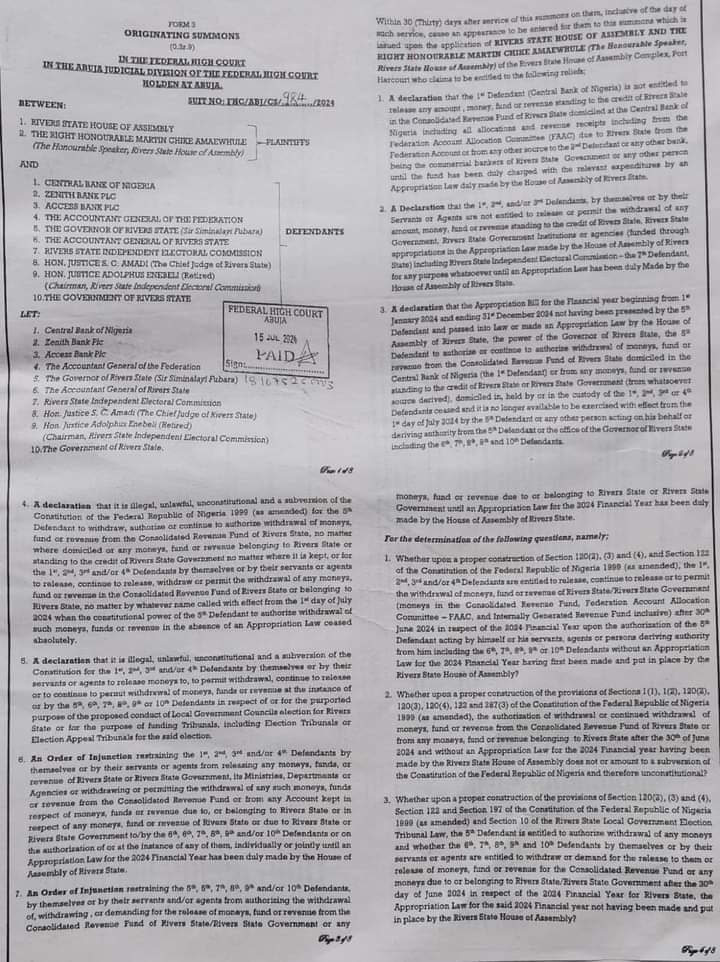In a significant legal move, the Rivers State House of Assembly, led by the Honourable Speaker, Right Honourable Martin Chike Amaewhule, has initiated a lawsuit against the Central Bank of Nigeria, Access Bank Plc, Zenith Bank Plc, and several federal and state officials. The suit, marked with the case number FHC/ABJ/CS/542/2024, is being heard in the Abuja Judicial Division of the Federal High Court.
The plaintiffs, Rivers State House of Assembly and its Speaker, are seeking several declarations and orders regarding the handling and disbursement of funds belonging to Rivers State. They argue that the defendants’ actions regarding the state’s funds are illegal, unconstitutional, and a subversion of the Nigerian Constitution.
Key Points of the Suit
1. Declaration of Illegality: The plaintiffs are seeking a declaration that any withdrawal or authorization of withdrawals from Rivers State Government funds by the defendants without proper appropriation by the Rivers State House of Assembly is unconstitutional.
2. Appropriation Law Requirement: The suit emphasizes that all funds due to the Rivers State Government, whether from the Federation Account Allocation Committee (FAAC) or internally generated revenue, must be appropriated by the House of Assembly before any disbursement or expenditure.
3. Specific Funds in Question: The suit specifically addresses funds in the custody of the Central Bank of Nigeria, Access Bank Plc, and Zenith Bank Plc, arguing that these funds must not be released or utilized without an appropriation law passed by the Rivers State House of Assembly.
4. Injunctions Sought: The plaintiffs are also seeking orders of injunction to restrain the defendants from authorizing or making any withdrawals from the state’s funds until a proper appropriation law for the 2024 financial year has been enacted by the Rivers State House of Assembly.
5. Interpretation of Constitutional Provisions: The suit calls for the court to interpret several sections of the Nigerian Constitution, particularly those dealing with the management of public funds and the legislative powers of state assemblies in financial matters.
This case underscores the ongoing tensions between state and federal authorities over financial governance and the control of state resources. The outcome of this suit could have significant implications for the autonomy of state governments in managing their finances and the adherence to constitutional provisions regarding public funds.
The Federal High Court’s decision on this matter is eagerly awaited, as it will provide clarity on the constitutional powers of state assemblies in relation to financial appropriations and the oversight of state funds.







